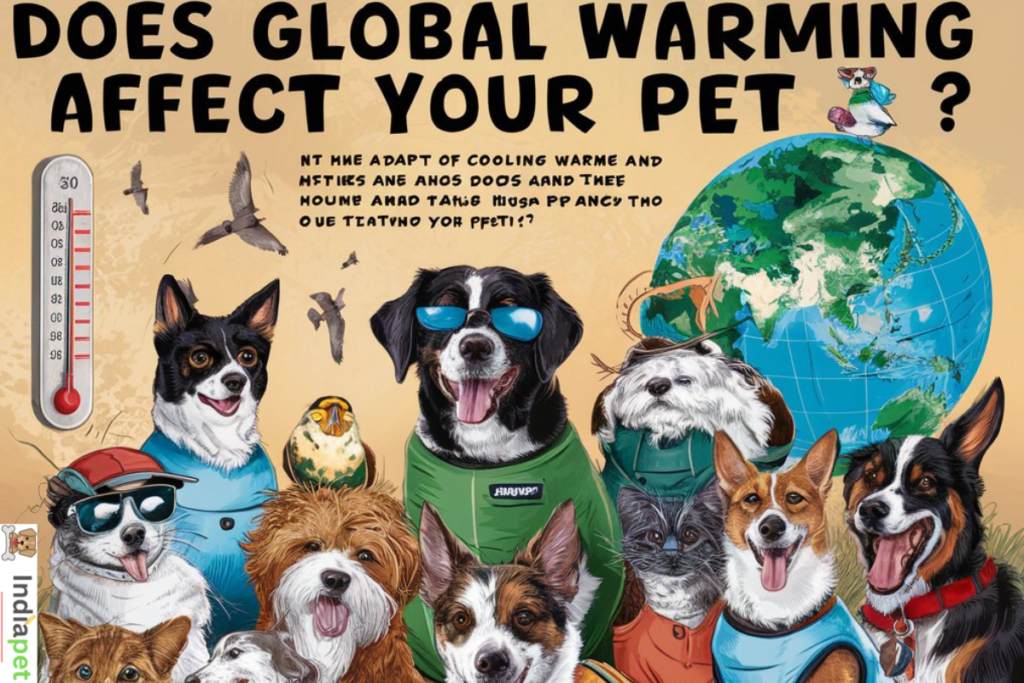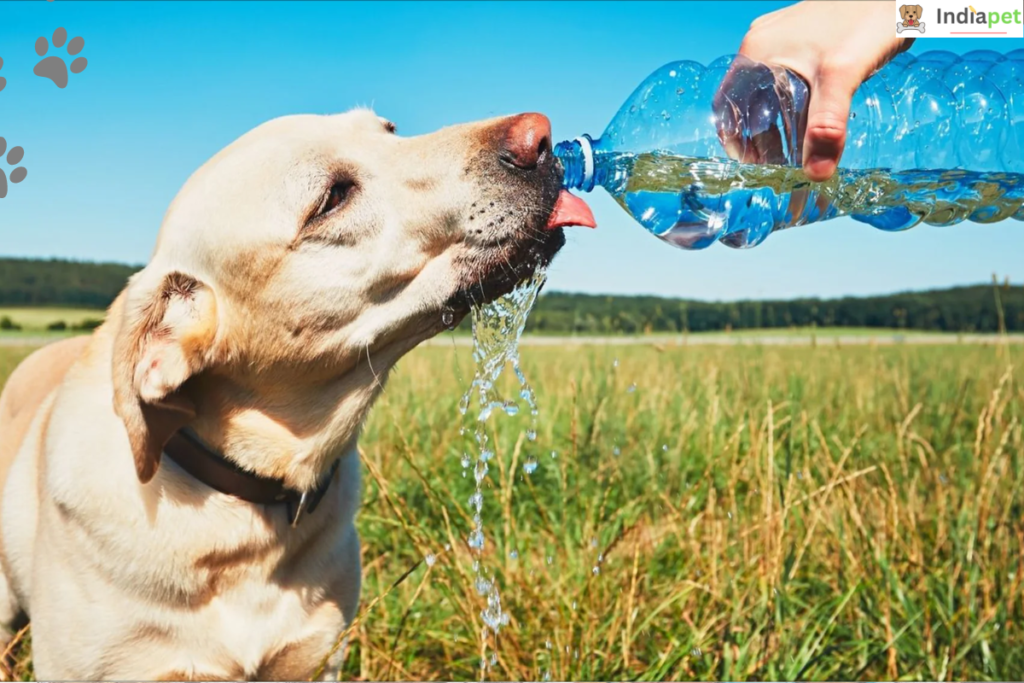Global warming, the continued increase in the average global temperature caused by human activities such as burning fossil fuels and deforestation, has far-reaching consequences for the environment and all its inhabitants, including our beloved pets.
While we often think of global warming in terms of melting ice caps and extreme weather events, its impact on pets is a lesser-known but important aspect that needs attention.
Global warming is a complex challenge that requires effective individual and collective action. Beyond the immediate concerns for our pets, such as heat-related illnesses and changes in parasite distribution, there are broader implications for ecosystems and biodiversity.
As temperatures continue to rise, habitats may change, affecting the availability of natural prey and resources for wildlife that pets may encounter outdoors. This dynamic interplay underscores the interconnectedness of all living creatures in the face of climate change.
Furthermore, the long-term consequences of global warming demand continued efforts towards sustainability and conservation. By advocating for policies that reduce carbon emissions, supporting renewable energy initiatives, and promoting environmental education, we can create a healthier future for our pets and all species on Earth.
Every small step taken towards reducing global warming contributes to creating a more resilient and prosperous planet for future generations. Let’s make sure our love and care for our pets extends to protecting their environment as well.
How Does Global Warming Affect Pets?
- Heat-related Illnesses: As temperatures rise, pets are increasingly vulnerable to heat-related illnesses such as heat stroke and dehydration.
Dogs, for instance, are particularly susceptible due to their limited ability to cool down compared to humans.
Changes in Parasite Distribution: Warmer temperatures can alter the distribution and life cycles of parasites like fleas, ticks, and mosquitoes. This shift can expose pets to new diseases and increase the prevalence of existing ones.
Impact on Wildlife: Global warming affects ecosystems and wildlife populations, potentially disrupting the prey-predator balance. It can indirectly affect pets interacting with wildlife or relying on certain prey animals for food.
Water and Food Scarcity: Climate change can lead to droughts and water shortages, affecting the availability and quality of drinking water for pets. Similarly, agricultural disruptions can impact pet food supplies.
Allergies and Respiratory Issues: Increased pollen counts and airborne allergens due to warmer temperatures can exacerbate allergies and respiratory issues in pets, just as in humans.
Specific Concerns for Different Pets
- Dogs: Breeds with shorter muzzles (like bulldogs and pugs) are more prone to overheating. Long-haired breeds may also suffer in hotter climates.
- Cats: Outdoor cats face increased risks from heat and changing predator-prey dynamics due to alterations in wildlife populations.
- Small Animals (e.g., rabbits, guinea pigs): These pets are sensitive to temperature extremes and can suffer heat stress or hypothermia if exposed to sudden temperature shifts.
Steps to Protect Your Pet from Global Warming
- Provide Adequate Water and Shade: Ensure pets have access to clean, fresh water at all times, especially during hot weather.
Create shaded areas outdoors or keep pets indoors during peak heat hours.
Monitor Exercise: Adjust outdoor exercise routines to avoid the hottest parts of the day. Consider shorter walks or more indoor playtime during heatwaves.
Grooming: Regular grooming can help prevent heat-related issues in pets with long or dense fur. Trimming long-haired pets can also keep them cooler.
Preventive Care: Use flea and tick preventives as recommended by your veterinarian. Monitor for changes in behavior or health that could indicate climate-related illnesses.
Environmental Enrichment: Provide mental stimulation and safe outdoor spaces protected from environmental hazards.
Conclusion:-
Global warming isn’t just a concern for the planet; it directly affects the health and well-being of our pets. From increased heat-related illnesses to changes in parasite distribution and food availability, the effects of climate change on pets are varied and potentially severe.
As responsible pet owners, it’s important to stay informed about these risks and take proactive steps to reduce them. By understanding how global warming affects our pets and implementing appropriate measures, we can ensure that our furry companions stay healthy and happy despite a changing climate.
In conclusion, while the impact of global warming on pets is significant and multifaceted, proactive measures and responsible pet ownership can reduce many of these risks. By staying informed and protecting our pets, we can ensure they thrive in a changing environment.
FAQs About Does Global Warming Affect Your Pet?
Does Global Warming Affect Your Pet?/Can global warming affect indoor pets?
Yes, indoor pets can also be affected indirectly through changes in air quality, pollen levels, and availability of certain pet foods.
Signs of heatstroke in pets include excessive panting, drooling, lethargy, and vomiting. Immediate veterinary attention is crucial if heatstroke is suspected. How can I tell if my pet is suffering from heatstroke?
Yes, breeds with short noses (brachycephalic breeds) and long-haired pets are generally more vulnerable to heat-related issues. Are certain pet breeds more susceptible to climate change effects?
Consider eco-friendly pet products, reduce waste, and choose sustainable pet food options. Additionally, minimizing car trips and choosing energy-efficient pet care practices can help. What can I do to reduce my pet's carbon footprint?
Supporting conservation efforts, maintaining wildlife habitats, and preventing pets from interacting with wild animals can all contribute to conservation in a changing climate. How can I help wildlife affected by climate change that might interact with my pets?





